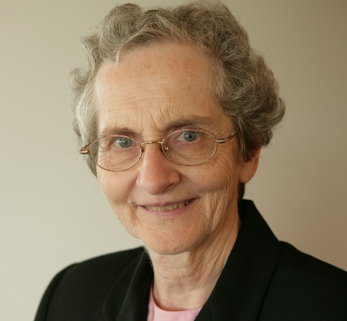“I ended up being able to use everything I ever learned. I even use my Latin, now, to translate judgments from Rome.”
The judgments grant or reject certain petitions for marriage annulment that originate from Sr. Marianne's office in Peoria, Illinois.
As director of the Marriage Tribunal of the Diocese of Peoria, she works with divorced Catholics who want very much to remarry in the Church.
“In the Catholic Church, you can get divorced but you cannot get remarried unless the first marriage is declared invalid,” Sr. Marianne says.
“If you remarry without an annulment, both you and your new spouse are to be denied Communion, even if only one of you is divorced. Many people simply quit going to church over it.
"I think those who continue to go to church without receiving Communion are tremendous witnesses to their faith. They may have been attending Mass for 20 or 30 years following a short, very painful marriage. They don't know they can do something about it. We do everything we can to help them within the law.”
For one thing, the Tribunal helps them search for grounds.
“Once a petitioner initiates the process (commonly by talking with her or his pastor), we want to discover whether the former spouse was baptized. That can be tricky to find out, but if she or he was not, the marriage will be dissolved 'in favor of the faith.'
"Similarly, if the spouse was formerly married, we will want to discover whether she or he obtained an annulment prior to this marriage. If not, the marriage will be considered invalid in the church. Other grounds can be more difficult to establish.”
Other grounds, such as abuse, infidelity, and an unwillingness to have children, likely will require the acquisition of medical records, psychological examinations, witness testimony and other evidence.
“People often feel they can't go back to these hurtful places, so they decide not to pursue an annulment,” Sr. Marianne notes.
“It's true that you have to go into personal, relational differences. Marriage is a very intimate thing. You have to go deeply into it to dissolve it. But those who stay with the process often come back later and say they gained new insight and that they grew greatly both personally and spiritually.
“Once people come to us, they should know that they've come through the worst. They've survived and grown and come to a better place. To visit that failed marriage again will promote more healing. We want to help them achieve that. We want to help bring them back to the sacraments.”
For more information on petitioning for an annulment, talk to your pastor or call your diocesan Tribunal Office.
